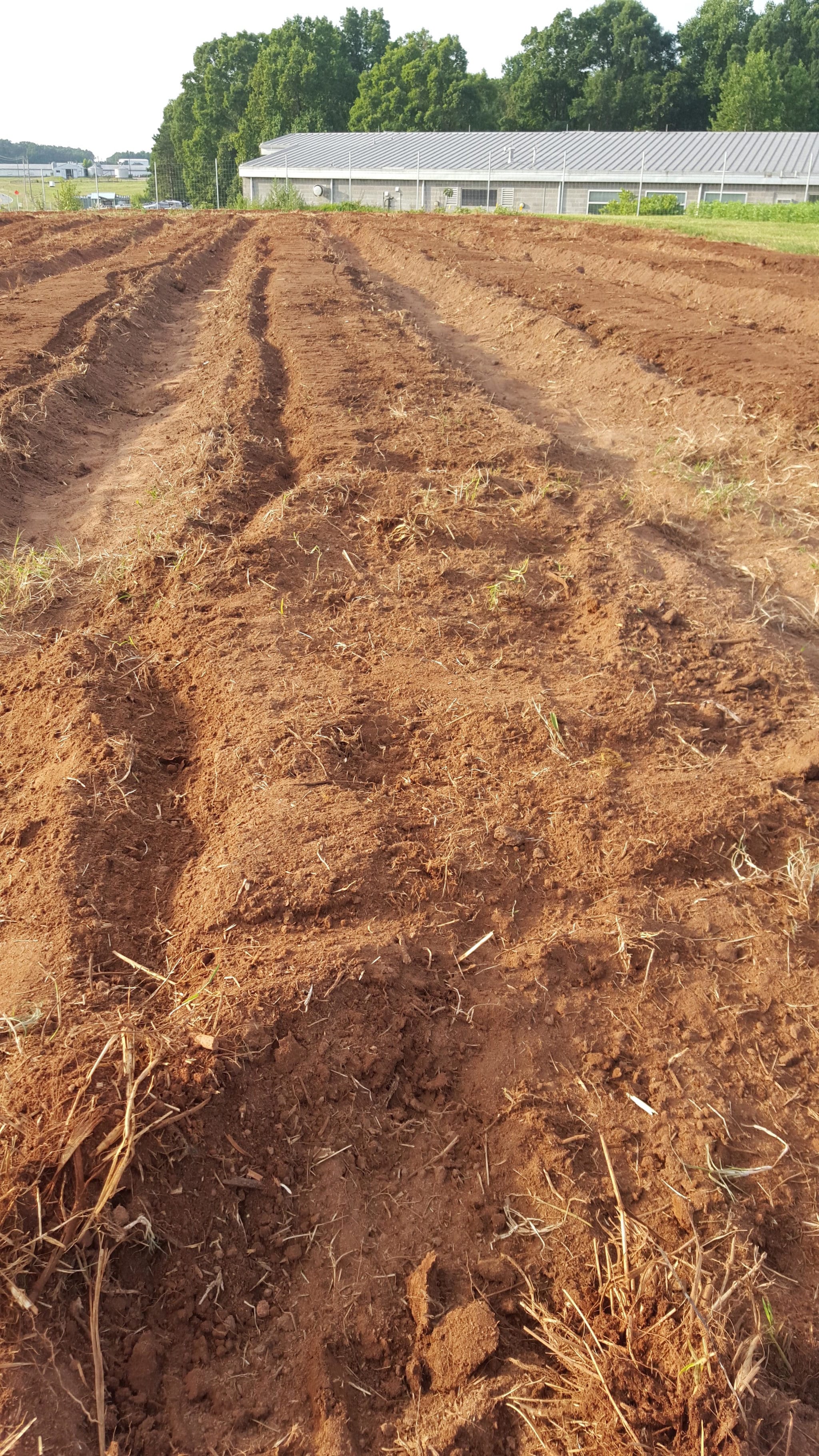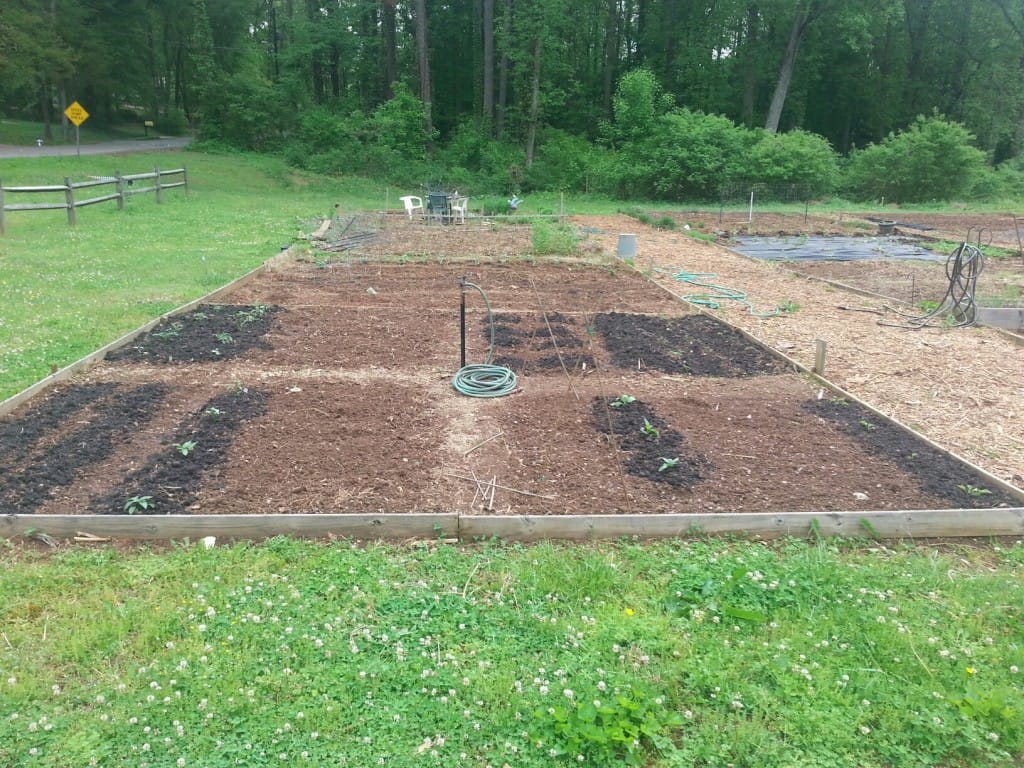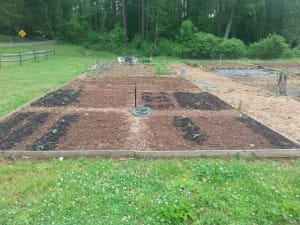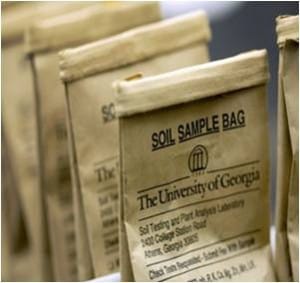Next in our series of posts on soil health, we want to explore soil pH and its importance to garden food crops. This involves remembering some of your high school chemistry so grab your cup of coffee to get the brain waves working.
pH is the measure of hydrogen ion activity
Soil acidity is a chemical factor that can affect food crop growth. Soil pH, the measure of hydrogen ion activity in a solution, is important for soil nutrient availability.
Think back to high school chemistry and that daunting Periodic Table. The element hydrogen (H) is located in the upper right hand corner and is carries a +1. That +1 means it can easily interact with elements with a -1 or a -2. Remember water is H2O. Two hydrogen +1s and one oxygen -2. Sound familiar?
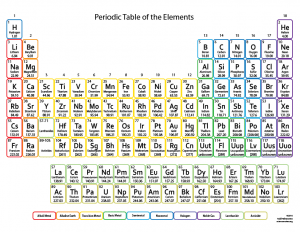
The pH scale is graduated from 0 to 14. The midpoint (7) separates acid from alkaline. Any number below 7 is acidic—the lower the number, the more acidic. The lower the number the increased H +1 activity.
A soil pH above 7 denotes alkaline soil conditions. The higher the number the increased OH -1 activity. The pH scale is logarithmic; a soil with a pH of 5.0 is 10 times more acidic that one with a pH of 6.0 and 100 times more than a pH of 7.0.
pH affects nutrient availability
This activity of H+1 and OH-1 can bind up nutrients that plants need by bonding with other soil ions. This is a very simplistic explanation and true soil chemistry is much more complicated. But, I think this gives you an idea of how pH is can be very important to plant growth. For example, at a soil pH of 5.0 much of the nitrogen fertilizer you add to the soil won’t be available to be absorbed by your plants!
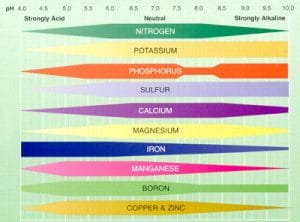
Correcting soil pH
A soil pH that is too low or too high can decrease the amount of nutrients absorbed by plant roots. Lime can be used to increase the soil pH, while sulfur can be used to decrease it. An accurate measure of soil pH is needed before corrections should be made.
Soil pH also influences other reactions in soil, such as microbial activity. Most food crops grow best in soils with a very slightly acidic pH, close to a neutral pH of 7. Most soils in Georgia, however, are too acidic, and lime is often needed to maintain ideal growth conditions.
Winter is a great time to have your soil pH tested. Contact your local UGA Extension office for assistance. To find out how to properly collect your soil for testing see Soil Testing for Home Lawns, Gardens, and Wildlife Plots.
Happy Gardening and congratulations on making it through the chemistry lesson!
